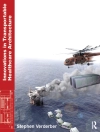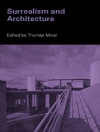Unite the science of sound and the principles of design to
enhance any space
Architectural Acoustics Illustrated translates the
quantitative and qualitative content of acoustics into the graphic
language of architecture. This highly-visual guide includes over
350 illustrations that outline the physics of sound and the best
design practices for limiting or mitigating noise in buildings by
using the latest in materials and techniques. Each chapter includes
a summary checklist of design guidelines to help prevent mistakes
and oversights, and the Instructor’s website offers video
animations demonstrating acoustical concepts. Designed as a ‘first
look’ at the interaction of sound and space, the book explains the
principles of architectural acoustics and their practical
applications, providing a comprehensive guide for designing with
acoustics in mind.
Architectural acoustics is more than just concert halls –
it may determine building placement, division of interior space,
exterior construction, and even siting. When addressed early in the
design process, the resulting space can be free of unwanted sound
and promote good hearing; if left unaddressed, the problems with
the space can lead to lawsuits and costly post-construction
remediation. Architectural Acoustics Illustrated helps
designers solve most acoustical problems in advance, by enabling
readers to:
* Understand the physical science underlying the behavior of
sound
* Consider the interactions of sound and space in the initial
design approach
* Mitigate building sounds such as those produced by HVAC and
plumbing with early design planning
* Design spaces for listening, and incorporate acoustics best
practices into every plan
The highly visual format of the book helps readers grasp complex
concepts quickly, and thorough discussion of each concept’s
real-world application ties the science directly into the design
process. All design professionals need to have a fundamental
understanding of acoustics, and Architectural Acoustics
Illustrated is a comprehensive, practical guide in an
easy-to-read format.
Daftar Isi
Acknowledgments xi
Introduction xiii
1. Basic Theory 1
Sound Level 2
Sound Level 2
Source Path Receiver 4
Measuring Sound Level 5
Measuring Sound Level 8
Multiple Sound Sources 9
Decibel Addition 10
Sound Propagation 11
Sound Propagation 11
Directivity 12
Sound Frequency 13
Frequency 13
Octave Bands 17
Sound Level Perception and Frequency 19
A-Weighted Decibels 20
The Special Case of Low-Frequency Sound 22
2. Sound Absorption 25
Principles of Absorptive and Reflective Surfaces 26
Absorption Coefficient 27
Types of Sound Absorbers 29
Room Constant 33
Room Average Absorption 33
Noise Reduction Coefficient (NRC) 36
Sound Absorption Data 38
3. Room Acoustics 57
Room Acoustics Qualities 58
Impulse Response 58
Reverberance 60
Optimal Reverberation Time 65
Clarity 66
Variable Acoustics 70
Reverberation Time Calculation Checklist 74
Room Shaping for Speech and Music 75
Loudness 76
Balconies 80
Sightlines 82
Warmth 83
Concert Hall Types 85
Spatial Impression 87
Intimacy 94
Diffusion 95
Theater Planning 97
Stage Acoustics 97
Orchestra Pits 101
What Makes a Good Room for Music? 102
Performance Venue Seats 106
Acoustic Defects 109
Acoustic Defects 109
Performance Venues 114
Room Acoustics History 114
Performance Venues to Visit 117
Design Checklists 118
Rooms for Unamplified Music Performance Checklist 118
Other Types of Rooms Checklist 119
Sound System Design 123
Electronic Sound Reinforcement 123
4. Noise Control 131
Sound Isolation Principles 132
Apartment Layout Graphic Quiz 132
Flanking 133
Flanking Graphic Checklist 134
Flanking Noise Checklist 134
Measures of Airborne Sound Isolation 140
Transmission Loss (TL) 140
Sound Transmission Class (STC) 142
How to Measure Sound Transmission Class (STC) 144
Target STC Ratings 146
Noise Reduction (NR) 147
Achieving Higher Acoustical Privacy 148
Background Noise 152
Background Noise 152
Noise Criteria (NC) 153
Speech Intelligibility and Noise 155
Open-Plan Office Acoustics 157
Sound Transmission Loss Data 162
Noise Reduction Example Problem 175
Air-Structure-Air Flanking 178
Acoustic Privacy Checklist 179
Apartment Layout Quiz Answer 180
Door and Window Sound Isolation 182
Doors 182
Noise Isolation and Windows 184
Impact Noise 185
Impact Noise Isolation 185
How to Measure IIC 190
Impact Noise Checklist 192
Recommended Floor-Ceiling Assemblies 195
Resiliently Mounted Room Surfaces 197
Community Noise 202
Principles of Community Noise 202
Building-in-Building Design 202
Noise Sources 204
Community Noise Research 207
Community Noise Example Problem 208
Outdoor Barriers 209
Outdoor Barriers Checklist 210
Outdoor Barrier Example Problem 212
Wind Turbine Noise 214
Community Noise Checklist 215
Mechanical System Noise 217
Principles of Mechanical System Noise 217
Ducted Fan Noise 220
Mechanical Room Graphic Checklist 224
Ducted Air Turbulence Noise 225
Vibration Isolation 229
Mechanical Noise Checklist 232
Plumbing Noise 237
Isolating Pipes from Structure 238
Plumbing Noise Checklist 239
Index 243
Tentang Penulis
MICHAEL ERMANN is an associate professor at Virginia
Tech’s School of Architecture + Design, and a past undergraduate
architecture program co-chairman. He teaches architectural
acoustics, design studio, and environmental building systems. Prior
to joining the VT faculty, Professor Ermann was an acoustical
consultant at Artec in New York, NY and Siebein Associates in
Gainesville, FL.












